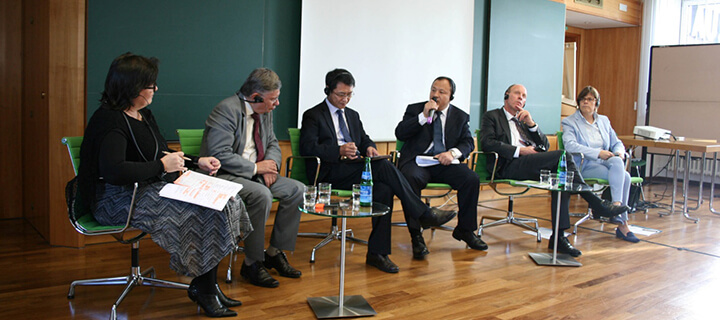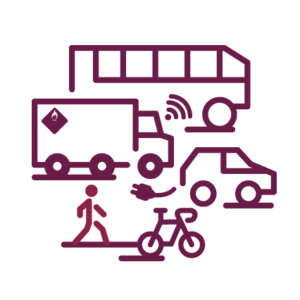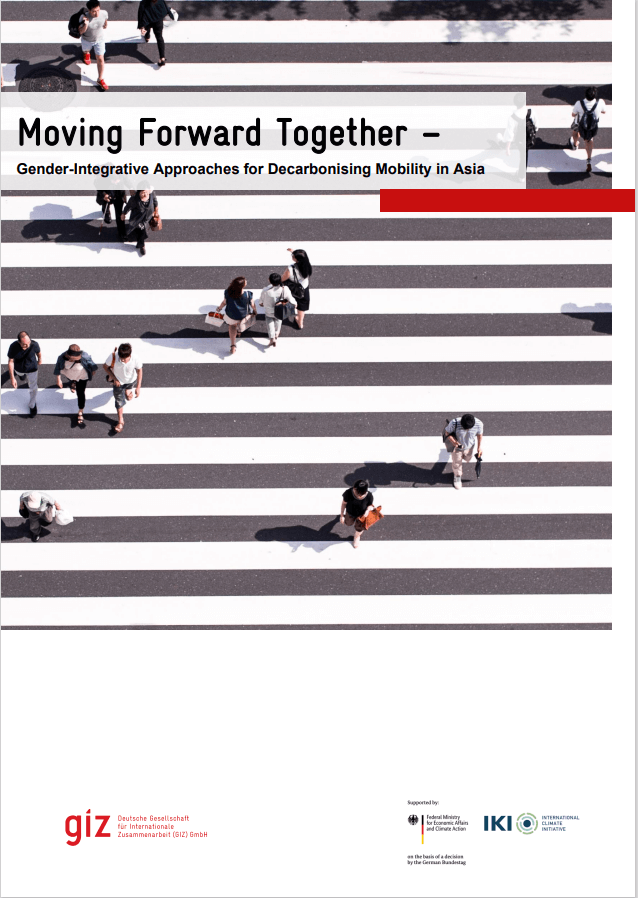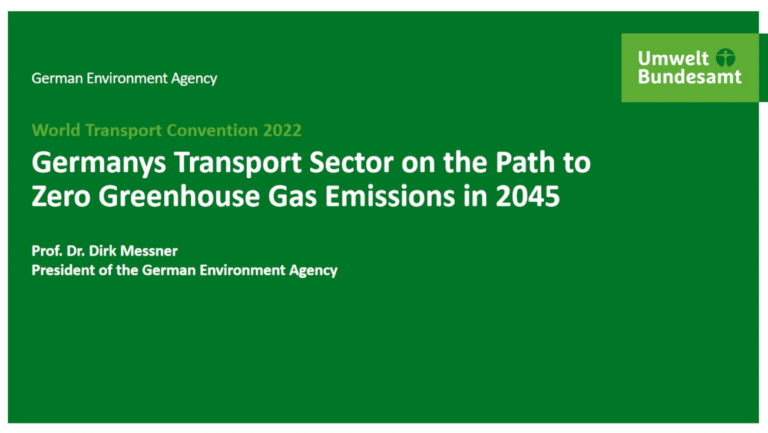Chinas rapidly changing structures and society challenge its sustainable urban development. Considering this, the study tour on low carbon urban development had a special focus on experiences on post-industrialisation processes and the structural reform in Germany. During two weeks in October, it provided an in-depth understanding of the German approaches towards climate protection strategies at city level and the national framework for low carbon urban development in Germany. The study tour was organised by GIZ on behalf of Energy Foundation for the National Academy of the Mayors of China, co-financed by Stiftung Mercator and carried out under Component 2 Low Carbon Development in the Transport Sector of the Sino-German Climate Change Programme.
The study tour started in Germany’s largest city and capital Berlin, which has changed noticeably due to the German reunification in 1990. Urban development and transition processes were examined further in North-Rhine Westphalia, centred on the polycentric Rhine-Ruhr metropolitan region, which was one of the most important industrial regions in Europe after WWII. Still Germany’s most densely populated area, the Rhine-Ruhr Region is a vivid example for the transition of a coal and steel industrial area, towards a more service-oriented economy.
Its integrated development after structure reforms makes Berlin an interesting case to study. After the German reunification 1990, the opportunity was met and Berlins transport network restructured, as large areas – used for border facilities so far – were released and could be redeveloped. Following the importance of interdependencies, all transport modes are covered in Berlin’s Integrated Urban Transport Plan StEP to ensure a low carbon transport development.
Since the seventies, protection of the environment is a major topic in German politics. Therefore energy efficiency in buildings is a topic addressed on national, regional and local level. With site-visits to redevelopment sites in Dusseldorf and Bottrop the participants got an in-depth view of local approaches of the topic. Energy and the second big topic in German environmental policies, waste and recycling management came together in waste-to-energy power plant of Berlin City Sanitation Services.
One of the highlights of the study tour was a Mayors Exchange organised by Stiftung Mercator. It gave the participants the opportunity for discussion with high-ranking politicians and practitioners from Germany. In addition to the Vice Mayor of Nanning and the Director of the Department of Publicity of Hegang, the mayors of Essen and Bottrop Reinhard Paß and Bernd Tischler, as well as Christoph Zöpel, former Minister of State of Northrhine Westfalia and Simone Raskop, Vice Mayor of Essen held keynotes in the half-day event. The Mayors Exchange provided an opportunity to discuss how the policies, measures and projects presented during the study are carried out in by German administrations.





